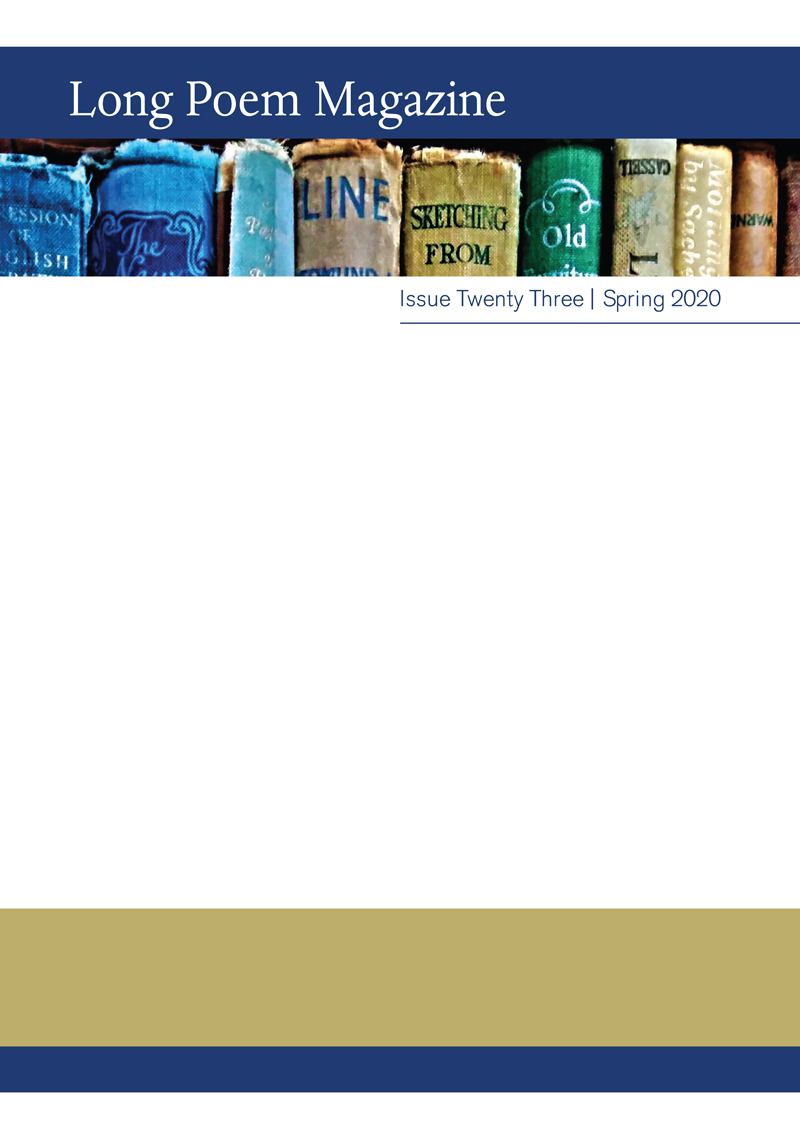In her book The Writing Life, Annie Dillard speaks eloquently of words being ‘a miner’s pick, a wood carver’s gouge, a surgeon’s probe …’ ‘A line of words fingers your own heart. It invades arteries […] feels for cracks in the firmament.’ She quotes Thornton Wilder citing an unnamed poet: ‘one line of a sonnet falls from the ceiling, and you tap in the others around it with a jeweller’s hammer.’ Jack London, she says, claimed to write twenty hours a day, quoting the apocryphal story that he rigged his alarm to drop a weight on his head. ‘Appealing workplaces are to be avoided,’ she says surprisingly. ‘One wants a room with no view, so imagination can meet memory in the dark.’
I used to wish for endless, uninterrupted time for both my artwork and my poetry – I fitted it in somehow – with four books published, I must have done! Despite space at home, I’ll sometimes write in cafés and I go out of the house to art classes, berating myself for all that procrastination at home. What about our poets and their writing lives? Kate Ling writes ‘in the gaps … everything else (whatever it is) comes first.’ Kate no longer thinks this is ‘an impediment’ realising ‘in the gaps is where I like to write. It’s stolen time, quick time, it’s intense.’ Sarah Roby has ‘a fixed set of coordinates’ returning to ‘the same red armchair’, its wide armrests becoming desk. Madeleine Wurzburger writes in her ‘conveniently quiet’ loft. Ian Brinton tends to work between seven and ten in the mornings in his upstairs study (I don’t know about the view): ‘My writing is inseparable from my reading’, his translations being a way of ‘putting what I read into my own words.’ Leeanne Quinn also likes to write early in the morning. When in Dublin she wrote in libraries and coffee shops. She also writes ‘off the page, turning lines over in my head until they are ready to be put down.’ D M Black has written poetry from the age of sixteen. When working as a psychoanalyst ‘poetry seemed too revealing and I published little until 2011.’ Now, translating ‘can easily occupy five or six hours a day.’
Anna Evas writes her poems ‘catch-can and schedule-free. The hazard of this whimsical approach is offset by intense focus on a singular theme.’ Once she has collected her material she will ‘sit by lamplight and begin’ all along wondering, ‘Shouldn’t I, a professional musician, be composing music?’ Some years ago, as a single parent of disabled children, Deborah Harvey managed to set aside five hours on a Friday to write her novel – it took her seven years and four years of edits before it was published. Now she says she can’t even manage that – like her grandmother before her, who raised eleven children between the wars, she keeps ‘a piece of scrap paper and a pencil in my pocket.’
For Robert Minhinnick, ‘Ideas come when I’m outside, often walking in the sand dunes.’ He then works in his office, ‘But being outside is often crucial.’ Kenny Knight does ‘bits of writing out walking, at work, over conversations drinking coffee with friends or scribbling notes down at readings’, but mostly at home where ‘one half of the sofa is a desk covered with notebooks, pens and loose sheets of paper.’ Nancy Campbell, Canal Laureate for 2018/2019, often pursued her research ‘in a kayak or canoe, and then writing notes on my return to land,’ valuing ‘the silent time on water (away from writing tools or the blank page) – considering the elements of the poem in my head … essential to the process of writing.’
Like Isaac Rosenberg, one of his heroes, Wilf Deckner usually begins ‘with untidy scraps of paper, densely covered with abbreviated phrases, arrows, brackets, boxes, and interlineations of key terms crowded together.’ He then writes in longhand at his dining table ‘overlooking the back garden through French doors of an afternoon, or more often with the curtains drawn, in a pool of light, after our evening meal.’ Penelope Shuttle begins her day reading in bed, then writing through the ‘long morning’, her working routine interspersed with visits to, and outings with, friends. Her poems, however, don’t always adhere to this schedule: ‘I often find myself writing a poem out of the blue, out of my usual time frame.’
Happy writing everyone – and reading!
Linda Black
